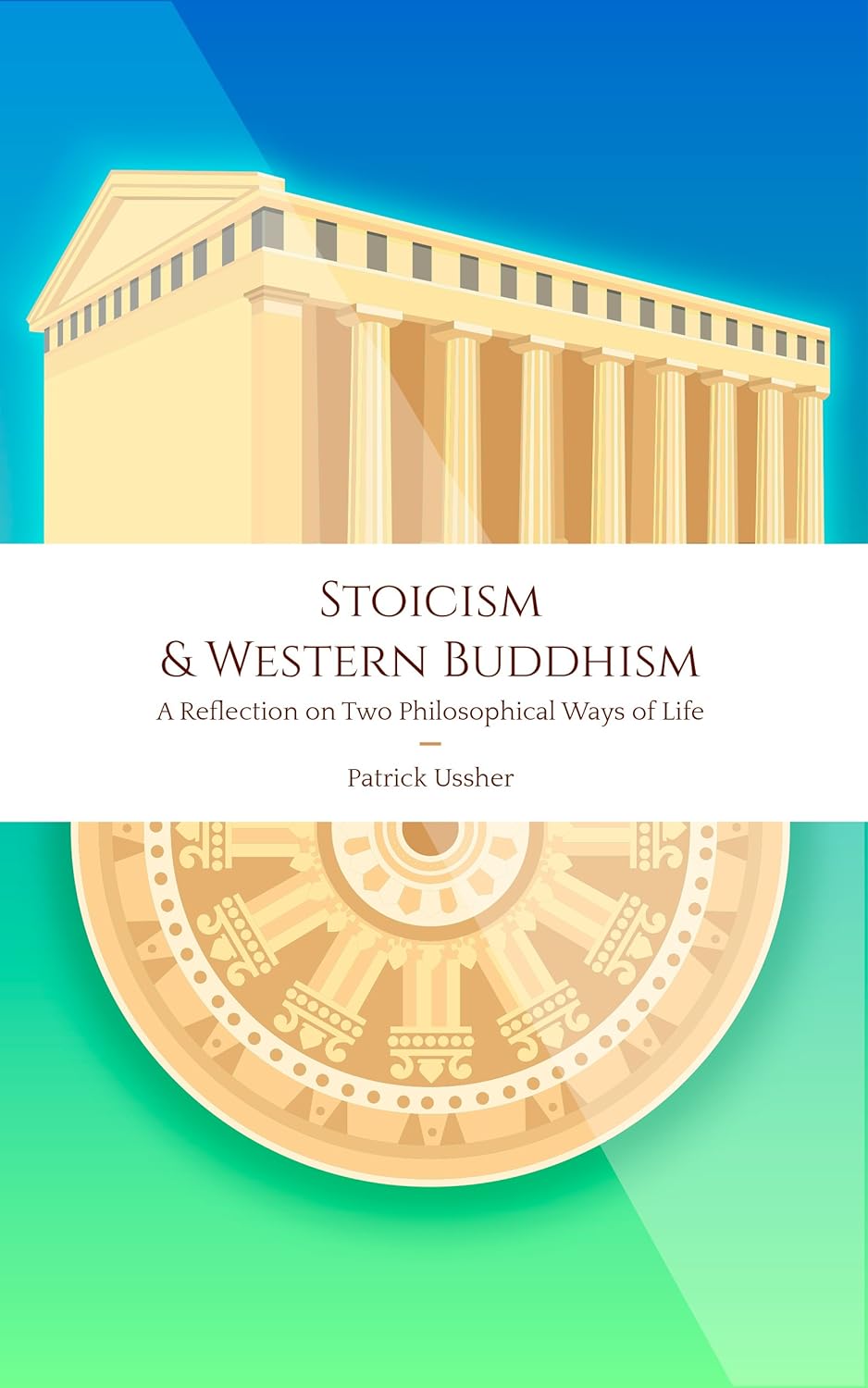
Many practitioners of Buddhism find that Stoic philosophy, the ancient Greco-Roman philosophy as a way of life, is similar to their own philosophy and a helpful addition to their lives. Meanwhile, many modern Stoics also practise Buddhist-inspired meditation and find inspiration in Buddhist ideas and practices. In this extended reflection, Patrick Ussher considers in what ways Buddhism and Stoicism are similar, highly engaged and practical philosophies as a way of life which can mutually inform and enlighten each other. The book explores themes of Buddhist and Stoic mindfulness, shared psychological insights as well as Stoic and Buddhist practices for cultivating compassion and concern for others. Patrick Ussher also explores why it is that, of all forms of Buddhism, it is 'Western Buddhism' that is most similar to Stoicism. In the West, Buddhism has been 'redeveloped' into a practical, highly engaged, present moment focussed philosophy as a way of life. And, as it happens, this Western 'reinvention' of Buddhism turns out to be much closer to Stoic philosophy than it is to the traditional Buddhism from which it draws. Similarly, Stoicism has also been undergoing a 'reinvention' in recent times which has particularly emphasised its practical nature as a philosophy as a way of life for anyone regardless of belief in God, which was an essential feature of traditional Stoicism. The resulting 'Modern Stoicism' is likewise even closer to Western Buddhism than traditional Stoicism is. This book is for anyone who is interested in how either Stoicism or Buddhism can be a helpful and heartfelt addition to their lives and who is also interested in reflecting on how both Stoicism and Buddhism are undergoing dynamic 'reinterpretations' in the modern world.
Genre: RELIGION / Buddhism / GeneralFeatured on Shepherd
https://shepherd.com/best-books/modern-day-adaptations-of-buddhism-and-stoicism
Lifetime sales: 1,121
Many modern Stoics also follow a Buddhist or Buddhist-derived meditation practice. Many Stoics, indeed, find the two approaches to be complementary. On the other hand, many modern-day Buddhists, upon encountering Stoic philosophy through a Buddhist lens, are struck by the parallels with their own approach. But why should this be the case?
For the person who is unfamiliar with modern Stoic or modern Buddhist practice, but who just has a sense of their classical forms, the two philosophies do not, at first glance, appear to have much in common. On the one hand, in the Greco-Roman philosophy of Stoicism we have a philosophical way of life embedded within a theistic worldview. On the other hand, in classical Buddhism, we have an atheistic yet religious philosophy focussed on attaining a positive future rebirth along with a monastic emphasis on asceticism. Why should these two different world-views complement each other? Why does a modern Stoic also look to practise Buddhist vipassana or insight meditation and find that this enhances, rather than diminishes, his own practice of Stoic virtue?
The answer lies in how we in the modern world have reinterpreted and continue to reinterpret both traditions in light of our own needs in the modern age. Strange as it may seem, the Buddhism that most Westerners (or those of a Western mindset) practise today is not the same as the Buddhism of the Buddha and, likewise, the Stoicism of many modern-day Stoics is not the same as that of the original Stoa. And yet the subsequent modern ‘reinventions’ of both philosophies are far more similar to each other than their respective ancient forms ever were.
| Language | Status |
|---|---|
|
Italian
|
Already translated.
Translated by Jacopo Stefani
|
|
|
Author review: Excellent, professional, engaging translation of a complex philosophical topic. A delight to work with. |
|
Portuguese
|
Already translated.
Translated by Taís Paulilo Blauth
|